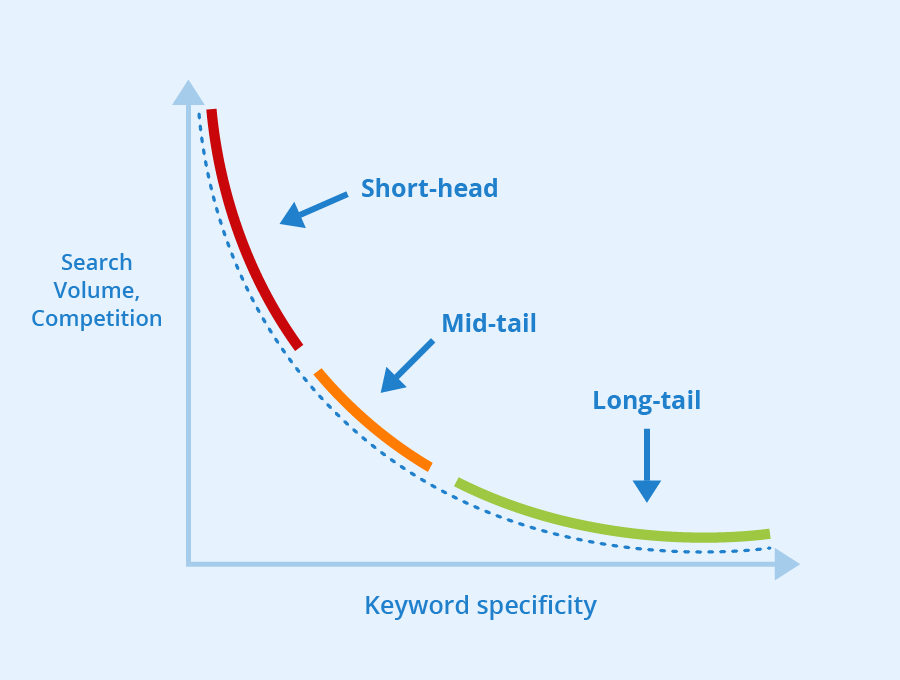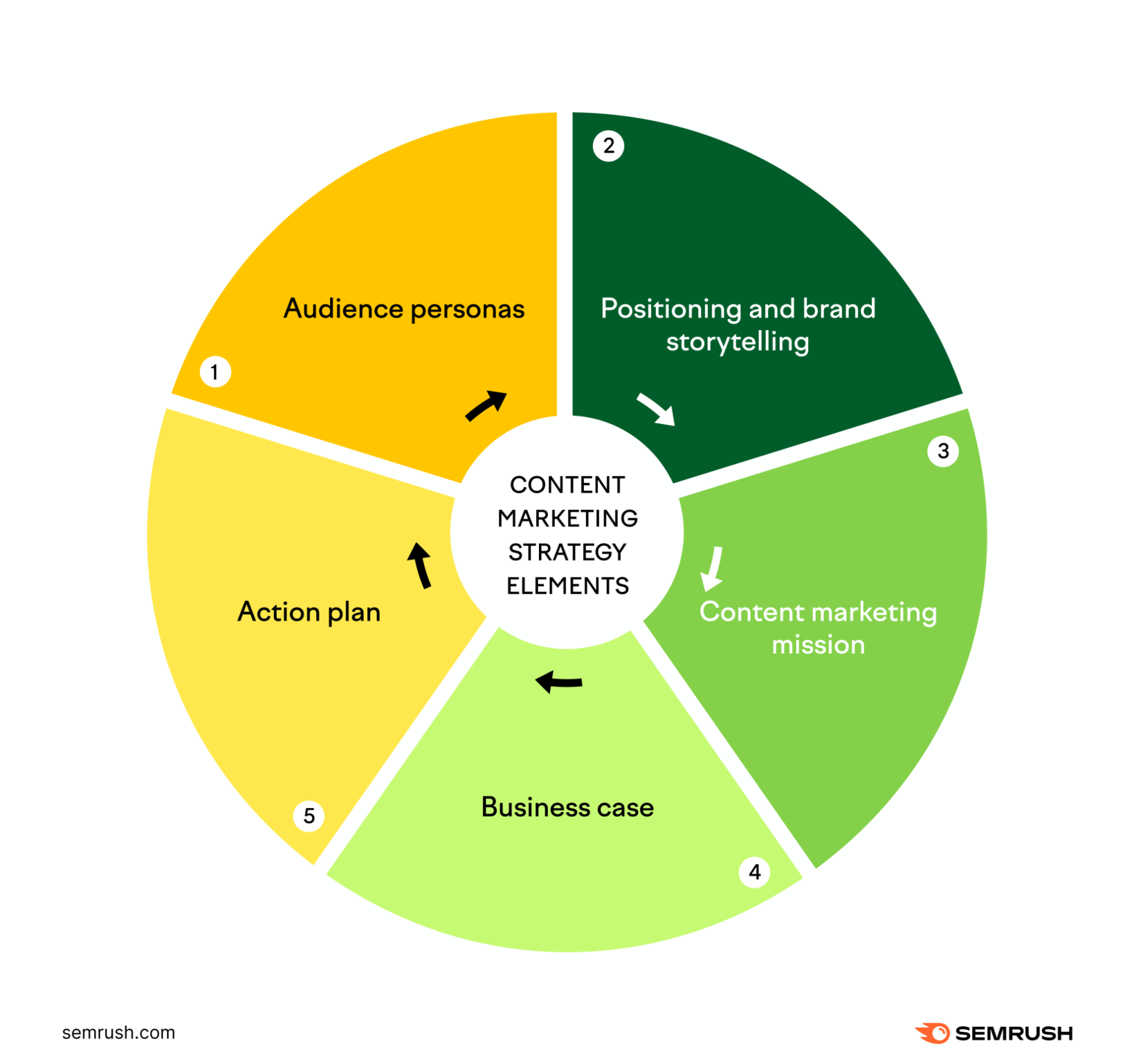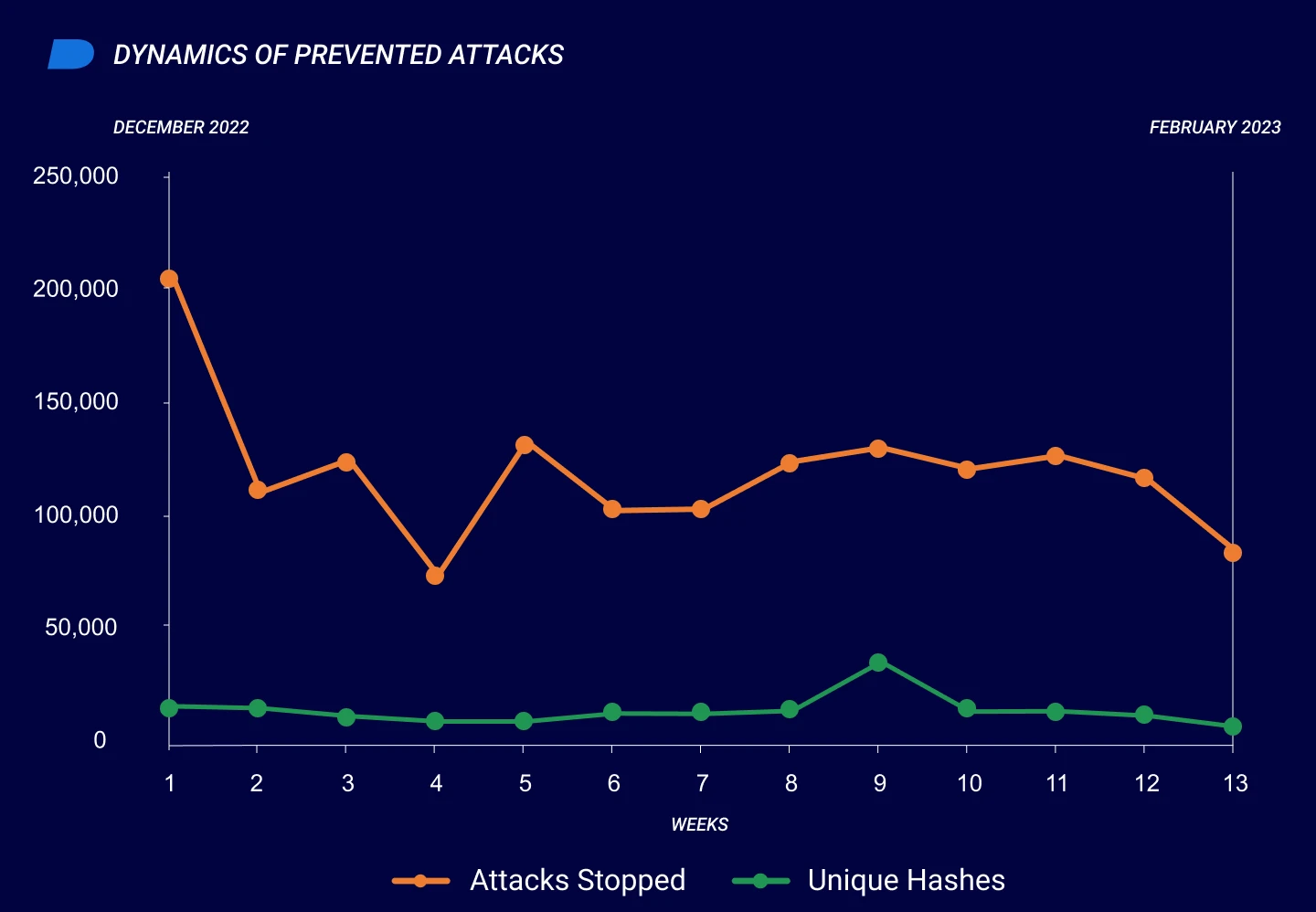12 min to read
SEO Strategy for Cybersecurity and Development Companies

UNODC's recent report highlights the alarming rise in the use of darknets and cyber-attacks in recent years. Since the Covid pandemic, there has been a staggering 600% surge in cybercrime and substantial economic damage. To put it into perspective, in 2009, there were 12.4 million reported cases of malware infections. Fast forward to 2018, and this number skyrocketed to a staggering 812.67 million. Malware attacks are increasing at an unprecedented rate, with a staggering 92% being delivered through email.
The financial sector hasn't been spared either, with a startling 90% of financial institutions reporting malware attacks in 2018, and a significant 70% of these attacks taking the form of ransomware. What's even more unsettling is that approximately 34% of businesses needed at least a week to regain access to their lost data, as reported by PurpleSec.
These statistics showcase the reality and how this is the perfect time for cybersecurity and development companies to make progress by helping the small and medium-sized enterprises (SMEs). SMEs, in many cases, remain unaware of the consequences of cyberattacks. This underscores the pivotal role of sales representatives and operational teams in conveying the message to this target audience. At the same time, it’s important that you have a detailed strategy to organically nurture this audience and what better than SEO. It's essential to educate your prospects about the risks and what all plans do they need to equip themselves with to protect their networks against potential cyber threats.
SEO is crucial to build trust and authority over your prospects

First and foremost you need to ensure that your brand is easily discoverable by potential clients who are actively searching for cybersecurity solutions. See, there are a lot of bottom of funnel prospects who already know about the challenges and are looking for options. Now, this won’t be a day’s feat to improve your rankings, hence you could make use of Google ads to improve your visibility for certain keywords(or other search engines).With a dedicated strategy, it is possible cybersecurity firms can rank higher in search engine results pages (SERPs), increasing their visibility and credibility.
SEO is incredibly important in the cybersecurity world, and here's why. Let’s imagine a simple customer journey in this case. Let’s say you are having certain doubts and questions regarding how you’ll respond to incoming threats to your network. In this case, your first step could be to search on Google about your basic queries. In this moment, the users will land on the websites that are ranking on the first page of Google search engine results page to get more information regarding the doubts that they have. Similarly, when they have more queries, they'll make more searches, and in return, the companies will get more chances to increase the touch points with the same customers. Now, most of the websites have tags installed so that they could retarget these customers who have previously visited their website. If the prospects are landing on the pages that are meant to serve the bottom of funnel prospects, then it might be a good idea to again target these customers on other social media or digital marketing channels. Now, the SEO efforts that you have put in so far is actually helping, you increase the trust and authority in the industry and among your customers. internet as a vast library and SEO as the system that helps people find the books they need. In this case, the books are about cybersecurity knowledge.
When a cybersecurity company uses SEO smartly, they're not just trying to climb up the Google rankings. They're actually showing everyone that they know their stuff. They do this by creating really good, helpful articles and information that tackle the big issues and questions in cybersecurity right now. This isn't just good for getting noticed on Google. It's also about earning trust. When someone is worried about online security and finds a well-written, insightful article, they're more likely to trust the company that wrote it.
SEO is also about really understanding what people are looking for. Cybersecurity companies can figure out the exact questions and problems people have and then tailor their online stuff to answer these questions. This is especially true for those very specific, longer search queries that people type when they're really digging for answers. In the cybersecurity space, where staying one step ahead of threats is key, having a strong online presence is a game-changer. It's not just about being seen; it's about being seen as the go-to experts. Companies that get SEO right don't just pop up more on Google. They become respected voices in a world where digital safety is super important.
We helped our client in cybersecurity space boost their overall organic traffic and visibility.

Our dedicated team of SEO experts at CodeDesign helped our client Cyber Intelligence House, a renowned cybersecurity company, with their content marketing and SEO campaign to boost their overall organic visibility.
Cyber Intelligence House, a Singapore-based cyber intelligence agency, faced the challenge common to many in their industry: translating complex cybersecurity concepts into engaging content that ranks well on search engines. Our approach was about understanding the intricate landscape of cybersecurity and how their potential clients search for solutions.
We commenced by conducting an in-depth analysis of the cybersecurity market, identifying key trends, and understanding the specific needs and search behaviors of their target audience. This research helped us in tailoring content that was not only SEO-friendly but also deeply informative and engaging to their specific client base.
The cornerstone of our strategy was developing a long-term SEO plan that focused on sustainable growth. We optimized their website's structure, ensuring it was not only user-friendly but also search engine friendly. We created high-quality, authoritative content that established Cyber Intelligence House as a thought leader in their field. This content strategy was complemented by robust on-page and off-page SEO practices.
The results were remarkable. We successfully increased their organic traffic, which in turn significantly enhanced their online visibility and brand credibility in the cybersecurity space. This increase in traffic wasn't just about numbers; it represented a more engaged and relevant audience, leading to better quality leads and business opportunities.
Our partnership with Cyber Intelligence House highlights how tailored, insightful SEO strategies can make a substantial impact in specialized fields like cybersecurity. At CodeDesign, we pride ourselves on not just delivering results but also on understanding and adapting to the unique challenges and intricacies of each industry we work with.
Understand the specificity of keywords in the cybersecurity niche

In the cybersecurity niche, the specificity of keywords is really important for a successful SEO strategy. This industry is characterized by highly specialized terms and a target audience that is well-versed in technical language. The key lies in striking a balance between technical accuracy and approachable language that appeals to a wider audience, including decision-makers who may not be as technically inclined.
See, the cyber security is an interesting space because the audience that would be mostly doing the research might not be the final decision makers in some cases. In many organizations, technical experts, such as cybersecurity professionals, perform the research and implementation of security measures. Hence, it means that we have to be able to ensure that both the technical audience and the decision makers are able to see the value in what we are providing, instead of getting lost in jargon. If we talk about the content marketing strategy, your content must have enough value to help the CTOs or the other technical audience understand the issues that they might be having and provide apt solutions for that.
For instance, terms like "endpoint security," "intrusion detection," and "phishing prevention" are specific to the cybersecurity field. These keywords need to be contextualized in content that addresses specific pain points and solutions relevant to the target audience. It's not just about the keywords themselves, but how they are used to address the challenges and concerns of potential clients.
Moreover, the cybersecurity field is continuously evolving, with new threats and solutions emerging regularly. This dynamic nature calls for a keyword strategy that is both current and forward-looking. Keywords around emerging threats, like "ransomware protection" or "IoT security," can tap into current market concerns and demonstrate a brand's expertise and up-to-date knowledge.
Understanding the specificity of keywords in cybersecurity also means recognizing the different segments within the audience. For example, a CTO might search for more technical terms, while a small business owner might use more general search queries. Tailoring content to these varying levels of technical understanding, using specific keywords appropriately, is crucial in effectively reaching and engaging with each segment of the audience.
How to make a right content marketing campaign and how to find the right keywords?

Image: Semrush
When we are starting with the content marketing campaign, it is important that we look into the databases that are specifically meant for the cyber security industry.
Tools like ThreatConnect, Anomali, and Recorded Future offer threat intelligence services that aggregate and analyze data from various sources, providing insights into emerging threats and vulnerabilities. This could be an excellent start for you to cover the topics that are not very often talked about. The ISC(SANS Internet Storm Center) provides real-time analysis and information about internet security threats and incidents. It's an excellent resource for staying up-to-date on the latest threats and vulnerabilities. See, these are good places to get ideas from.
Also, the NIST National Vulnerability Database (NVD) provides a comprehensive database of known vulnerabilities in software and hardware products. It includes detailed information about each vulnerability, its severity, and references to related publications. You could use these sources to brainstorm ideas and come up with content that is not only relevant but also in the trend.
The next step could be to use tools like Ahrefs or SEMrush that can provide insights into the keywords your competitors are targeting, their ranking positions, and the content they are creating. This doesn’t mean copying their strategy but rather understanding the market landscape and finding gaps that your content can fill. One mistake that you should avoid at all cost is the mismatch of the content and the intent behind the search. See, keywords need to align with user intent – informational, navigational, or transactional. For example, someone searching “what is endpoint security” is likely seeking information (informational), while a search for “best endpoint security software” indicates a closer intent to purchase (transactional).
Explore content types like threat reports, case studies, and educational materials.

The threat reports are important in demonstrating your brand's authority and up-to-date knowledge in cybersecurity. By regularly publishing detailed threat reports, your company can attract a professional audience looking for the latest information on cyber threats. Here you also get keyword ideas related to specific threats, attack vectors, or emerging vulnerabilities. These reports not only improve SEO through fresh, relevant content but also help in building a reputation as a thought leader in the cybersecurity space.
There is no denial that case studies are powerful tools for demonstrating the real-world application and effectiveness of cybersecurity solutions. Let’s say you have already nurtured your prospects, and they are considering you as an option to buy from, then the last step is to understanding that you are capable in solving their problems. See, the cyber security space requires a lot of trust, relationship, and authority. Hence, if you constantly showcase your successful case studies, you'll have a great chance in winning over your prospects.
They should detail how specific cybersecurity challenges were addressed and resolved, using specific industry-related keywords. This type of content appeals to decision-makers and technical professionals who are seeking proven solutions. Optimizing these case studies for search engines involves using keywords that potential clients might use when searching for similar solutions or when facing similar security challenges.
Educational content such as how-to guides, best practice articles, and explanatory videos play a critical role in attracting and educating a broader audience. And, as we previously talked about the situation where the decision makers might not be very well versed in the technical content, hence these content might help bridge the gap and improve the communication.This content should be optimized for both technical and non-technical keywords, as it caters to a diverse audience, from IT professionals to business executives.
What on-page optimization could you incorporate in your content to increase its chances of ranking higher?
The architecture of your page would play a key role in the user experience and in helping the search engine bots in understanding your content. Break down your content using headers (H1, H2, H3). This not only helps with readability, especially for complex cybersecurity topics, but also allows you to include secondary and tertiary keywords in a structured manner.
At the same time, include links to other relevant pages on your site to keep the reader engaged and distribute page authority throughout your site. Also, link to authoritative external sources when citing data or referencing cybersecurity incidents. This enhances credibility and user experience.
Cybersecurity content can be dense and technical. Ensure your website is user-friendly, with a clean layout, readable fonts, and mobile optimization. A good user experience reduces bounce rates and increases the time spent on your site, both of which are beneficial for SEO. We also suggest to use images, infographics, and videos to explain complex cybersecurity concepts. These elements should be optimized with relevant file names and alt text for improved accessibility and SEO. Then, ensure that aspects like site speed, mobile responsiveness, and URL structure are optimized. For cybersecurity websites, security features like HTTPS are also crucial, as they impact both SEO and user trust.
FAQS - Frequently Asked Questions
What is the importance of SEO in the cybersecurity industry?
In the rapidly evolving and highly competitive cybersecurity industry, SEO (Search Engine Optimization) plays a pivotal role in ensuring that a company's solutions and services are visible to potential clients at the exact moment they're searching for them. Given the complexity and technical nature of cybersecurity products, potential clients often rely on search engines to find answers to their specific concerns and evaluate solutions. A robust SEO strategy enhances a company's online presence, drives targeted traffic, and increases the likelihood of converting inquiries into sales. For instance, Codedesign has witnessed firsthand how effective SEO strategies have significantly elevated the online visibility of cybersecurity firms, leading to increased leads and sales.
How can cybersecurity companies improve their online visibility through SEO?
Cybersecurity companies can enhance their online visibility through a multifaceted SEO strategy that includes optimizing website content for relevant keywords, improving site speed and mobile responsiveness, and securing high-quality backlinks from authoritative sources within the tech and cybersecurity communities. Incorporating technical SEO practices to address site architecture and ensuring content is easily crawlable by search engines are also crucial. Engaging in local SEO practices can further refine visibility to target specific markets or regions. Analytics play a key role in continuously refining these strategies based on user behavior and industry trends.
Why is keyword specificity crucial in cybersecurity content marketing?
Keyword specificity is paramount in cybersecurity content marketing due to the highly specialized nature of the industry. Specific keywords allow companies to target niche segments within the broader market, catering to precise needs and concerns of potential clients. This specificity ensures that the content not only attracts more qualified leads but also addresses the exact issues and challenges faced by the audience. For example, targeting keywords related to specific types of cyber threats or compliance regulations can attract businesses looking for tailored solutions, thereby increasing the chances of conversion.
What strategies can help in identifying the right keywords for cybersecurity SEO?
Identifying the right keywords for cybersecurity SEO involves a strategic blend of industry knowledge, competitor analysis, and understanding of the target audience's search behavior. Utilizing SEO tools to conduct keyword research can reveal search volume and competition levels, guiding the selection of terms that strike a balance between relevance and attainability. Analyzing top-performing content within the cybersecurity space can also uncover gaps and opportunities for keyword targeting. Furthermore, engaging with cybersecurity forums and communities can provide insights into the language and concerns of potential clients, informing keyword selection.
How can content marketing be optimized for cybersecurity audiences?
Optimizing content marketing for cybersecurity audiences involves creating content that is both informative and accessible. Given the technical expertise of the target audience, content should delve into the specifics of cybersecurity threats, solutions, and trends without oversimplifying complex topics. Using real-world examples and case studies can illustrate the practical application and effectiveness of cybersecurity solutions. Additionally, incorporating multimedia elements like videos, infographics, and interactive tools can enhance engagement and comprehension. Regularly updating content to reflect the latest cybersecurity developments ensures ongoing relevance and value to the audience.
What types of content are most effective for cybersecurity companies' SEO efforts?
For cybersecurity companies, the most effective types of content for SEO efforts include in-depth guides and whitepapers, threat analysis reports, case studies, and blog posts that address current trends and threats. Such content not only attracts traffic through targeted keywords but also positions the company as a thought leader in the field. Interactive content, such as webinars and online tools for vulnerability assessments, can also significantly enhance engagement and shareability, further boosting SEO performance.
How does on-page optimization enhance the SEO of cybersecurity websites?
On-page optimization enhances the SEO of cybersecurity websites by making them more accessible and relevant to both search engines and users. This involves optimizing title tags, meta descriptions, and headers with targeted keywords to improve visibility in search results. High-quality, relevant content that addresses user queries and includes internal links to other website sections improves user engagement and dwell time, which are positive signals to search engines. Additionally, optimizing images and ensuring fast loading speeds contribute to a better user experience, further boosting SEO rankings.
What role do threat reports play in a cybersecurity company's SEO strategy?
Threat reports play a crucial role in a cybersecurity company's SEO strategy by providing valuable, timely, and often exclusive content that attracts a highly targeted audience. These reports are rich in keywords related to the latest threats and solutions, which can improve search rankings for these terms. Moreover, threat reports are highly shareable and can generate backlinks from reputable sites in the cybersecurity community, enhancing the site's authority and SEO performance. They also reinforce the company's position as a thought leader, attracting more organic search traffic.
How can case studies boost SEO and demonstrate cybersecurity solutions' effectiveness?
Case studies can significantly boost SEO by showcasing real-world applications and effectiveness of cybersecurity solutions through detailed narratives. They are rich in specific keywords related to the challenges, solutions, and outcomes associated with cybersecurity interventions. This specificity not only helps in ranking for those keywords but also in attracting a highly relevant audience looking for evidence of effective solutions. Furthermore, case studies can generate backlinks and social shares, especially when they highlight significant successes or unique approaches to solving cybersecurity issues, thereby improving the overall SEO performance.
What are some best practices for developing educational content in the cybersecurity field?
Developing educational content in the cybersecurity field involves striking a balance between technical depth and accessibility. Best practices include using clear, concise language to explain complex concepts and incorporating examples and analogies to make content more relatable. Structuring content with headings, bullet points, and summaries can enhance readability, making it easier for readers to grasp key points. Including actionable tips and recommendations can add practical value, encouraging engagement and sharing. Staying updated on the latest cybersecurity trends and threats ensures the content remains relevant and valuable to the audience.

About Bruno GavinoBruno Gavino is the CEO and partner of Codedesign, a digital marketing agency with a strong international presence. Based in Lisbon, Portugal, with offices in Boston, Singapore, and Manchester (UK) Codedesign has been recognized as one of the top interactive agencies and eCommerce agencies. Awarded Top B2B Company in Europe and Top B2C company in retail, Codedesign aims to foster personal relationships with clients and create a positive work environment for its team. He emphasizes the need for digital agencies to focus on data optimization and performance to meet the increasingly results-driven demands of clients. His experience in digital marketing, combined with a unique background that includes engineering and data, contributes to his effective and multifaceted leadership style. |

About CodedesignCodedesign is a digital marketing agency with a strong multicultural and international presence, offering expert services in digital marketing. Our digital agency in Lisbon, Boston, and Manchester enables us to provide market-ready strategies that suit a wide range of clients across the globe (both B2B and B2C). We specialize in creating impactful online experiences, focusing on making your digital presence strong and efficient. Our approach is straightforward and effective, ensuring that every client receives a personalized service that truly meets their needs. Our digital agency is committed to using the latest data and technology to help your business stand out. Whether you're looking to increase your online visibility, connect better with your audience, get more leads, or grow your online sales. For more information, read our Digital Strategy Blog or to start your journey with us, please feel free to contact us. |
CodeDesign is leading:
- Digital Agency
- Digital Marketing Agency
- Digital Ecommerce Agency
- Amazon Marketing Agency

Add comment ×